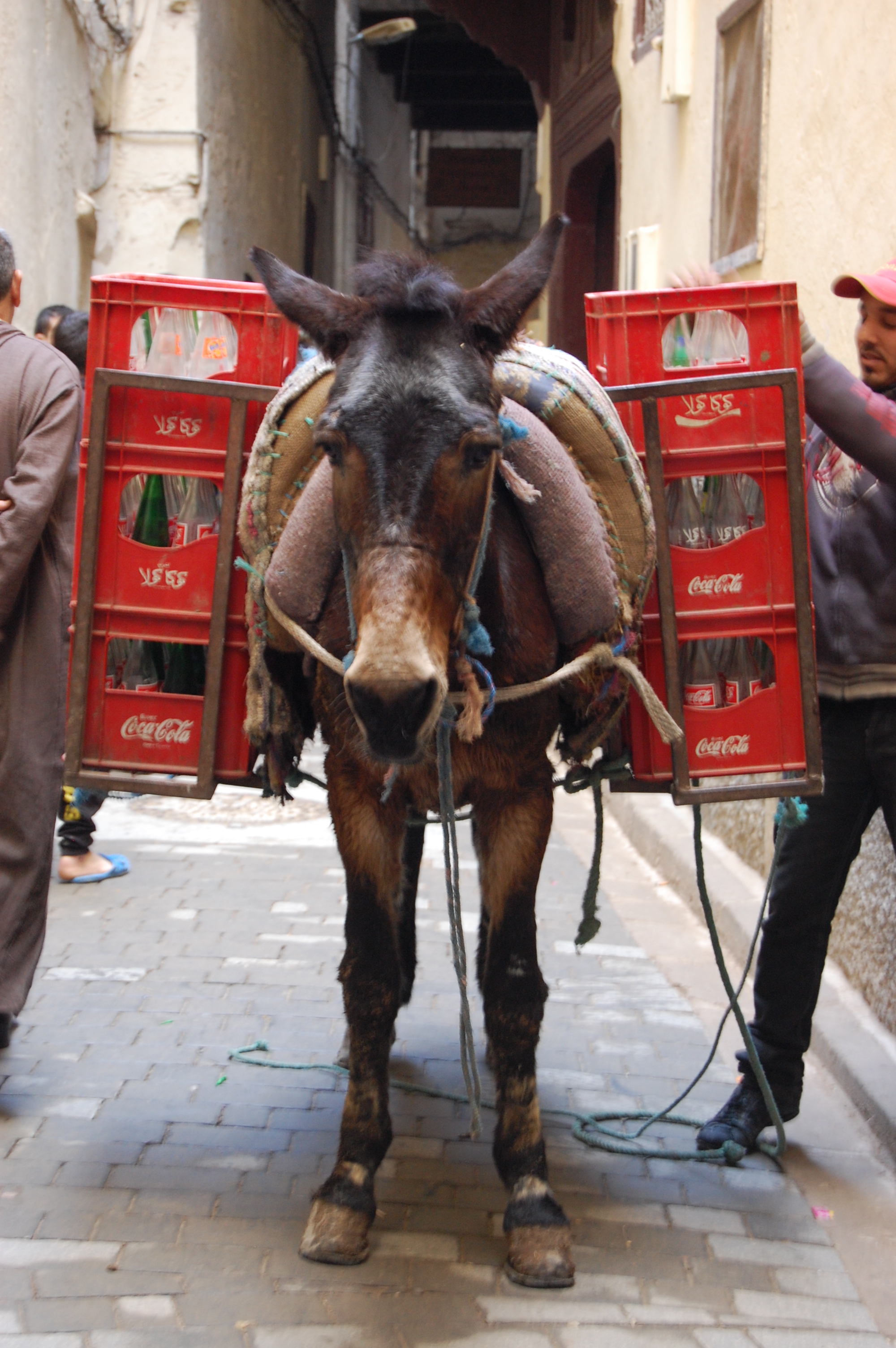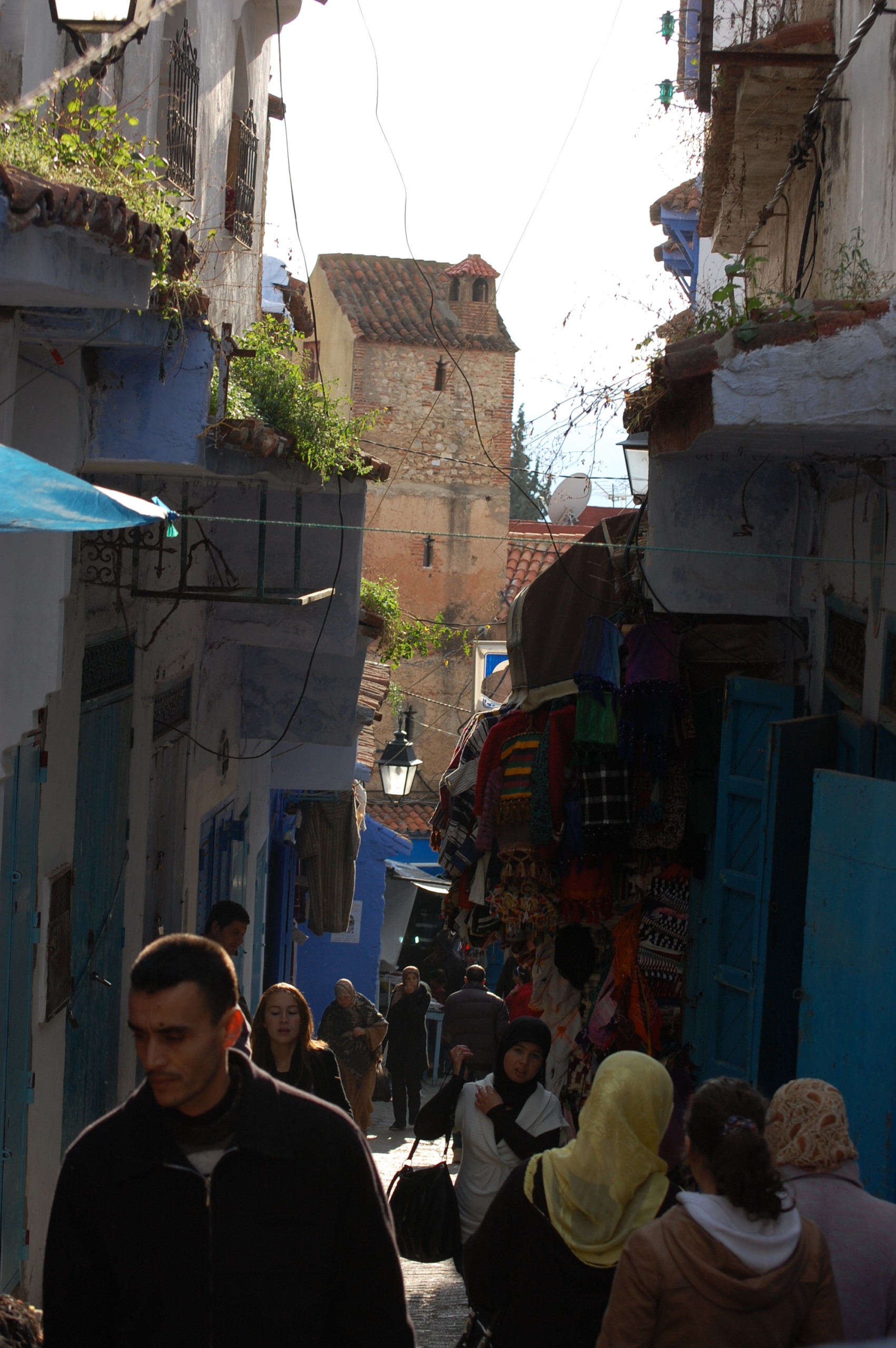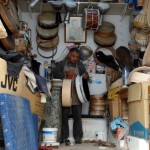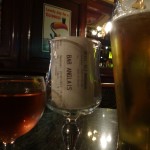Jay’s Medina Survival Guide
Medinas are the old quarters of North African cities. They’re beguiling, fascinating and at times rather scary places for the uninitiated. Sometimes covered, other times not, they’re a warren of narrow winding streets, packed with tiny homes, market stalls, workshops and people. Noises, colours, smoke, flashes of light, there’s something to catch your eye every second, around every corner. You’ll find them in places like Fez and Marrakesh in Morocco, and Sfax and Sousse in Tunisia, and they can be delightful or disgusting experiences, depending on a few factors. With the help of a few hints and tips from our (limited!) experience of being in maybe six or seven medinas, we hope you’ll find these places a wonder.
Warning: we’re amateurs! we’ve only been in these countries for 3 months in total, so are not experts. The info below is based on our visits to the medinas of (Morocco) Chefchaouen, Fez/Fes, Marrakech/Marrakesh, Tangier (Tunisia) Monastir, Sfax, Sousse. Any thoughts or amendments are gratefully received: please just comment below.
What to Expect
- Something wonderful. The big medina of Fez is everything you might expect from the movies, a true wonder, something which really shouldn’t exist in 2013. The smaller medina of Sfax is hardly interested in your tourist dollar, you feel like an 18th century wanderer. All medinas offer something of interest, if you’ve never been in one, you’re likely to be wide-eyed and, if you’re anything like us, not a little frightened.
- Filth. Scattered rubbish, living and butchered animals, hygiene standards in eateries which have you peering through your health insurance policy wording, you name it. You’ll be in a developing African country, in the oldest and least developed urban bits of it, it ain’t gonna be spotless.
- Hassle. People will want your money. The level of hassle varies to a huge degree depending on the medina you’re in (Marrakesh and Fez have the highest level of the ones we’ve seen) and whether you have a guide, who will fend off other guides and be a shining signal to potential hustlers to leave off, he’s the only one to profit from you!
- People who are out to make a living. If you respect the fact this is behind whatever action they take, smile, shake hands, hug people, just treat them like the fathers they probably are, it’ll be a lot more fun.
- Quality variation: there will be some wonderful hand made stuff, and some tat imported from China. Have a good look at anything you plan to buy, don’t be rushed (one fabulous guy we met took days to buy a carpet, returning for tea and more discussion).
- If you’re overtaken with a flood of emotion for how poor people look, buy a load of stuff, or hand over all your cash to beggars. But bear in mind that Morocco and Tunisia are deeply Islamic countries, and one of the five central tenets or ‘pillars’ of Islam is to give to the needy, so the locals are likely to already be taking care of those in need.
What Not to Expect
- Danger. At least during the day, these places are reputed to be safe and we’ve had no trouble. Despite the myriad of scowling men’s faces, leaning on walls like gangs about to leap upon you and grab your wallet, the worse you can expect is to be ripped off when buying something you do or don’t want. That said, ask your hotel for advice, check out your guide book, ask fellow travellers, some areas might not be safe, especially for lone women or at night.
What to Do
- Buy the Rough Guide and/or Lonely Planet for the country. Check out the writer’s advice for the nature of the medina you plan to visit, how easy it is to navigate yourself, the map (the Fez one is such a maze no such map seems to exist), the latest scams, and possibly for some idea of prices.
- In Morocco, official guides are licensed and should be decent quality. They should speak English (check first), and should have a good knowledge of the medina. We have only used a guide once, in Fez, and the experience was excellent, brilliant and great value. Bear in mind these guys, no matter how friendly, are looking to compliment their income too and will take you into shops, maybe a fair few of ’em. If you buy in here, a percentage will be added on which goes to the guide in commission. Tell the guide in advance if you don’t want to buy things, you’ll probably still end up in shops and maybe have to pay the guide a bit more, but it will reduce the pressure from the start. Tunisia has no license system, but we’ve not found the medina big or complex enough to need one.
- On the subject of prices, nothing will be priced. Either get a guide and question them as to likely prices, find a fixed price shop and see what their (elevated) prices are beforehand, or be prepared to haggle a number of times at different shops.
- If you don’t speak the language, taken a paper pad and a pencil/pen. Get the price written down, and make sure it’s obvious which currency you’re talking about.
- Feel free to completely blank touts and shop owners. It’s more than likely not in your nature. When someone say’s ‘hello’, you look around and make eye contact. When someone says ‘look in my shop’, you feel you have to say ‘no thanks’. You don’t have to do either. Ignoring someone doing this is fine by the local culture – so says our Rough Guide to Tunisia and it works for us.
- Ignore daft low prices quoted by sellers at the door. A euro for a massive wool blanket? Everything in the shop is €2? It’s all a bit of banter, once you’re inside they’ll change tact to ‘a discount of €2’ or some such.
What Not to Do
- Don’t start a haggle over anything you don’t want. You’ll either have to buy it, or exiting the scene may well be rather messy.
- Don’t mention a price you won’t pay.
- If you don’t fancy fighting your way out of a shop, don’t go in.
- Some folks don’t want to be in your photos or video, and will make clear how upset they are if you snap ’em, as they should (for women in particular you should be very sensitive). If you can, ask first, just look at them, hold up your camera and they’ll either nod or shake their heads.
- Don’t get angry. In the hard core tourist-oriented medinas, if you look Western (no amount of old clothes or wearing a djellaba robe will change this), then you’ll come in for a load of attention. Keep your cool, you’ll be out soon enough.
- Don’t take your pet dog in there, unless you want to get more attention than an arisen Micheal Jackson moonwalking and being chased by Bubbles.
The Art of Haggling
- This section really should be taken with a pinch of salt, we’ve only bought a few things this way.
- Within the medina, nothing (OK, hardly anything) is likely to have a price tag visible. Even if it does, it may be open to debate.
- Ask the price, make no assumptions, don’t commit to anything without getting a price, unless you really are willing to pay well over the odds.
- Some things you don’t haggle over. Typically food, although we’ve never quite figured out what you do and don’t haggle over. I’ve accidentally haggled over bottled water before, confusing the seller no end as you never haggle from the little grocery stalls I found out later.
- The seller will be an expert haggler, regardless of what he looks or sounds like, how friendly he is, he’ll be very good at it, having done it for ever.
- Don’t mention a price you don’t want to pay.
- Don’t mention the price you do want to pay.
- Do your best to look like you do not want the thing you’re buying. This is best achieved if you actually don’t want it or know that there are loads more for sale around the corner at another stall.
- If there are two of you, the bad cop, good cop routine works well, although I usually mess this up by being too good copish and accidentally siding with the seller.
- Ignore any reference to a deal being just for you, or anything to do with special discounts blah blah.
- Ignore any reference to him having a family of fifteen who are all dying of hunger. This is probably untrue. If you believe him, just hand over all your money and feel the warm feeling of charity.
- Try to look poor. Tell the seller you’re staying in the youth hostel. Hide jewellery, watches and wads of cash. Maybe rubbing dirt on your face may help, but I’ve not tried this yet. We’ve been told starting price is often based on what they think you can pay, if that is the case we suspect the starting prices we’ve had would be low as we’re usually very scruffy.
- Don’t hold the thing you’re haggling over during the haggle, this mentally attaches you to it, put it down.
- When he opens at 100, look ill. Or astonished. Feel the thing a bit. Tell him you think it’s worth 5, he looks ill.
- When you finally get close to agreeing, or if the seller won’t budge on price, politely tell them that was your best price and walk away. Often they will reduce their price closer to what you want to pay in order to stop you.
- I should point out much of the above is what I’ve read should happen. What actually happens is this: the bloke says 50, I say erm, will you take 30, he says 40 and I go, oh, OK then. Ju is tougher, she does the stuff above, she’s a haggler, Jay’s a muppet when it comes to money.
- Once the haggle is over, shake hands, and try and work out what the price you just paid is in €s or £s!
A quick taste of the Sousse medina, Tunisia:
Cheers! Jay and Ju





If you don’t want to haggle there is a store (ensemble artisanal)avenue Mohammed V Marrakesh run by the government where everything is priced to give people an idea of what they should be paying. Visit it first for ideas of price or buy from there. Quality of goods is probably a little better as well.
Thanks Penny. They have stores like that in every town in Tunisia, didn’t know they had them in Morocco too. Cheers Julie